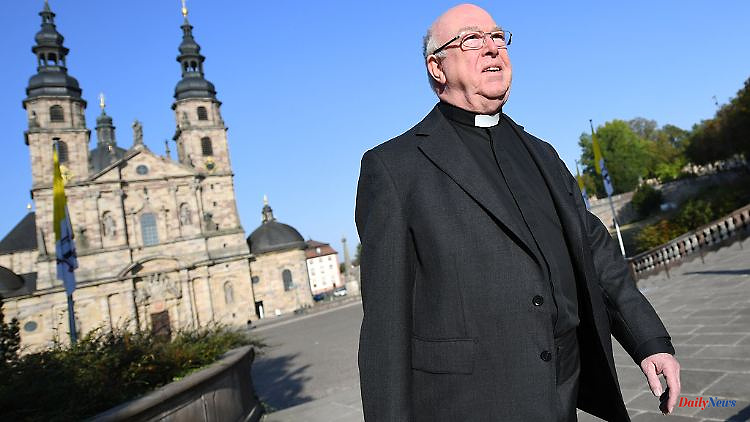After the resignation of Hans-Josef Becker, the Archdiocese of Paderborn is looking for a new head shepherd. The processing of the abuse scandal is just beginning in the sixth largest German diocese.
Paderborn/Rome (dpa/lnw) - After 20 years in office, Archbishop of Paderborn Hans-Josef Becker has resigned. Pope Francis accepted the 74-year-old's request for his resignation, the Holy See announced on Saturday.
"The decision from Rome makes it clear to me again: It was right to hand my office over to younger hands," Becker said afterwards on the Archdiocese of Paderborn's website. "Right for me personally, so that I can take good care of myself and my health in the future. And right for our large diocese, which has to address many future issues - at the level of our own diocese development, the synodal path and the universal church." The Synodal Path is a reform process in the Catholic Church in Germany that has been ongoing since 2019. Among other things, it aims to strengthen the position of women and liberalize church sexual morality.
In the Catholic Church it is not a matter of course that the Pope accepts the resignation of a bishop. However, Becker recently had to cancel appointments because of his poor health. Born in the Sauerland region, he is considered a down-to-earth guy who finds it easy to make personal contact with believers. On church-political questions, he acted rather inconspicuously to the outside world. In the conflict between reformers and traditionalists, which has been increasing for years, he did not appear as an opinion leader.
However, the chairman of the German Bishops' Conference, Georg Bätzing, recognized him on Saturday as a firm support of the synodal path. "During this challenging time for our church, I have always experienced you as an incorruptible supporter of this process," said Bätzing. "With the necessary objectivity and, above all, the realistic view of the state of the church, you were always convinced of the necessity of the synodal path."
The processing of the sexual abuse of children by priests is far from over in the Archdiocese of Paderborn. The Archdiocese commissioned an independent research team from the University of Paderborn to examine the period from 1941 to 2002. The first interim results were presented at the end of last year: According to this, Becker's predecessors, Cardinals Lorenz Jaeger and Johannes Joachim Degenhardt, protected the accused and neglected the victims. Abusing priests were simply transferred to other congregations. Jaeger (1892-1975) was Archbishop of Paderborn from 1941 to 1973, Degenhardt (1926-2002) from 1974 to 2002.
In total, the scientists Nicole Priesching and Christine Hartig have identified 160 suspects for the period from 1941 to 2002. Their conclusion is that both the church and society have systematically looked the other way and condoned or condoned crime. "There was no sensitivity to the damage the children took," said Hartig.
With 1.4 million believers, Paderborn is the sixth largest German diocese. Geographically, it stretches from Minden in the north to Siegen in the south and from Höxter in the east to Herne in the Ruhr area. In addition to the areas in Westphalia, parts of the Waldeck-Frankenberg district (Hesse) and the town of Bad Pyrmont (Lower Saxony) belong to the Archdiocese of Paderborn.












